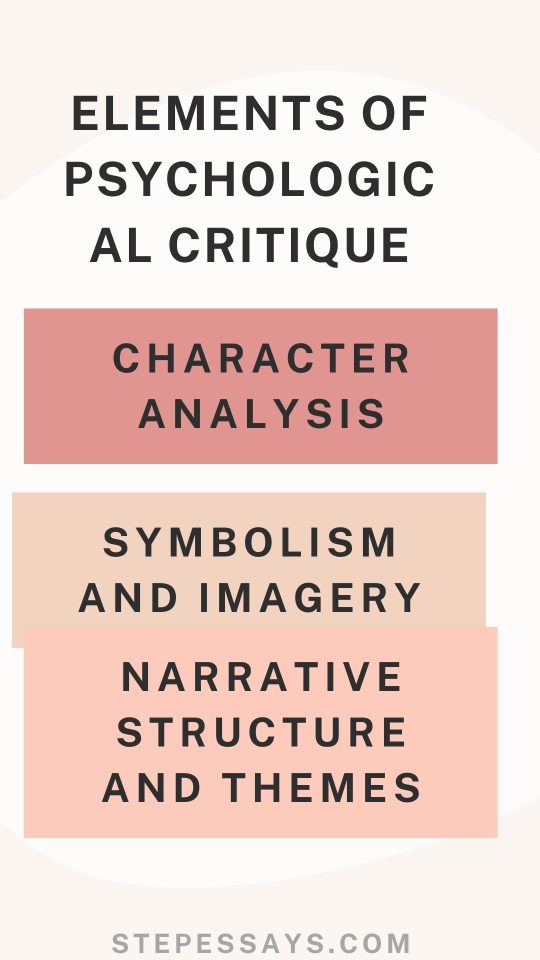Introduction
Literature, as an art form, serves as a window into the human psyche. It looks into the complexities of human emotions, behaviors, and motivations, offering profound insights into the human condition. Psychological criticism of literature seeks to explore the underlying psychological dimensions of literary works, unraveling the complexities of characters, themes, and narratives. In this essay, we embark on a journey to understand the nuances of crafting a psychological critical essay on literature, looking into methodologies, theories, and practical approaches.
Understanding Psychological Criticism
Psychological criticism, rooted in psychoanalytic theory pioneered by Sigmund Freud and later expanded by theorists like Carl Jung and Jacques Lacan, examines literature through the lens of psychology. It aims to uncover unconscious motivations, desires, and conflicts manifested in literary texts. By analyzing characters’ behaviors, relationships, and symbolic imagery, psychological criticism unveils the psychological underpinnings of literature.
Elements of Psychological Critique

critical
- Character Analysis: Characters serve as the focal point of psychological criticism. Analyzing characters involves exploring their personalities, motivations, conflicts, and developmental trajectories. Freudian concepts such as the id, ego, and superego can be applied to understand characters’ internal struggles. For instance, in Fyodor Dostoevsky’s “Crime and Punishment,” the protagonist Raskolnikov’s inner turmoil reflects Freud’s theory of the unconscious mind and moral conflict.
- Symbolism and Imagery: Symbols and imagery in literature often carry psychological significance, representing unconscious thoughts and emotions. Jungian archetypes, such as the hero, the shadow, and the anima/animus, provide frameworks for interpreting symbolic elements in literary works. Analyzing symbols and imagery unveils the collective unconscious themes embedded in literature.
- Narrative Structure and Themes: Psychological criticism examines narrative structures and recurring themes to uncover underlying psychological motifs. Themes like alienation, identity crisis, and the search for meaning resonate deeply with psychological theories of human behavior and development. For example, Franz Kafka’s “The Metamorphosis” explores themes of existential angst and alienation, reflecting Freudian concepts of repression and unconscious desires.
Approaches to Psychological Critique
- Psychoanalytic Approach: Rooted in Freudian psychoanalysis, this approach focuses on unconscious drives, childhood experiences, and defense mechanisms depicted in literature. It explores how characters’ behaviors and conflicts reflect Freudian psychosexual stages and dynamics.
- Jungian Approach: Drawing from Jung’s analytical psychology, this approach emphasizes archetypal symbols, collective unconscious, and individuation process portrayed in literature. It analyzes characters and narratives in terms of archetypal patterns and universal themes.
- Psychosocial Approach: Combining psychological and sociological perspectives, this approach examines how literature reflects societal influences, cultural norms, and individual psychology. It explores how characters navigate social structures, power dynamics, and identity formation.
Crafting a Psychological Critical Essay
- Selecting a Text: Choose a literary work rich in psychological themes, complex characters, and symbolic imagery. Consider classics, modern literature, or contemporary works that resonate with psychological theories and concepts.
- Conducting Research: Familiarize yourself with relevant psychological theories, concepts, and criticism related to your chosen text. Explore scholarly articles, books, and critical essays that offer insights into the psychological dimensions of the text.
- Formulating a Thesis: Develop a thesis statement that articulates the psychological interpretation you intend to explore in your essay. Your thesis should highlight the key psychological themes, character dynamics, or symbolic elements you plan to analyze.
- Analyzing Textual Evidence: Support your thesis with textual evidence from the literary work. Examine character dialogues, actions, and interactions, as well as symbolic motifs and narrative structures that reflect psychological dimensions.
- Integrating Psychological Theory: Apply relevant psychological theories and concepts to interpret the textual evidence. Whether you’re employing Freudian, Jungian, or psychosocial perspectives, ensure coherence and clarity in your theoretical framework.
- Providing Contextual Analysis: Situate your analysis within the broader sociohistorical context of the literary work. Consider the author’s biography, cultural milieu, and historical events that may influence the psychological themes and motifs depicted in the text.
- Engaging with Secondary Sources: Incorporate scholarly criticism and theoretical perspectives from secondary sources to enrich your analysis. Engage in critical dialogue with other scholars’ interpretations while offering your unique insights and arguments.
- Writing and Revising: Structure your essay with a clear introduction, body paragraphs, and conclusion. Write cohesively, using precise language and analytical depth to convey your ideas effectively. Revise your essay for coherence, logical flow, and adherence to academic conventions.
Practical Methodologies:
- Close Reading:
- Close reading involves attentive analysis of the text, focusing on language, imagery, and narrative techniques.
- Engage in a close reading of literary passages to uncover nuances of character psychology, symbolism, and thematic resonance.
- Pay attention to details such as diction, syntax, and figurative language, as they offer clues to characters’ inner worlds.
- Comparative Analysis:
- Comparative analysis involves examining multiple literary texts or characters through a psychological lens.
- Compare and contrast characters’ psychological traits, motivations, and developmental trajectories across different works.
- Identify common themes, archetypal patterns, and psychological dynamics that transcend individual texts.
- Interdisciplinary Inquiry:
- Enrich your psychological analysis by drawing on insights from other disciplines, such as sociology, anthropology, and philosophy.
- Explore how historical contexts, cultural norms, and philosophical frameworks influence characters’ psyches and behaviors.
- Adopt a multidisciplinary approach to deepen your understanding of the psychological dimensions of literature.
Conclusion
Crafting a psychological critical essay on literature requires a deep understanding of both literary and psychological theories. By analyzing characters, symbols, and narratives through psychological lenses, scholars and readers alike can unearth the profound insights into the human psyche embedded in literary works. Through thorough research, thoughtful analysis, and critical engagement, we unravel the relation interplay between literature and psychology, enriching our understanding of both disciplines and the human experience they illuminate.
